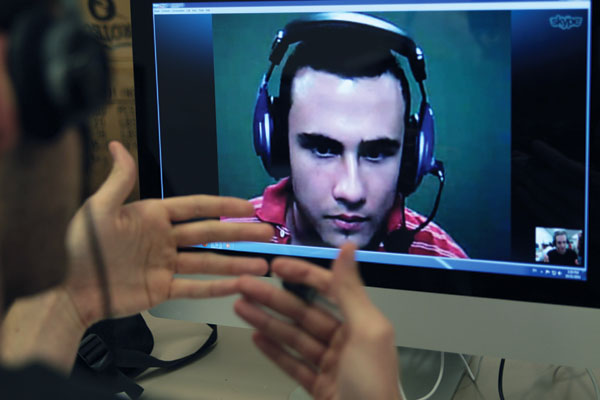

The UM student body personifies the extreme diversity of the University of Miami, with more than 110 countries represented in the student population. The Directed Independent Language Study (DILS) program allows students to practice and master foreign languages otherwise unavailable.
Under the leadership of Dr. Maria Kosinski, the DILS program began in the spring of 2009 with three language offerings: Haitian Creole, Russian and Levantine Arabic. Today, the DILS program offers more than 20 different languages, including Korean and Swahili.
“The whole philosophy behind DILS is to promote greater, increased opportunities for students to achieve basic levels of linguistic competence and broader cultural awareness as they study less commonly taught languages,” Kosinski said.
Students can apply for any language they choose, provided it’s not offered in the UM curriculum. While there is no “teacher” in the traditional sense, students are matched with a native speaker in an educational partnership.
Mackenzie Sheldon, a rising third-year student in the Fellowship in Latin American Studies from Collegeville, Penn., joined the DILS program in the fall of 2011 to study Kichwa, a language that is part of the Quechan family.
“My Kichwa teacher started out as just a stranger, but my classmates and I quickly grew to love her enthusiasm for teaching her native tongue, her humor, her unending patience, and her generosity with providing us cultural insights,” Sheldon said.
Sheldon, like many others in the program, studied with her language partner over Skype. Kosinski said that Skype has been a valuable tool in connecting with other institutions where the particular language is taught and with native speakers beyond the Miami community.
“Through her tutelage, I found out about a study abroad opportunity in her hometown, Sapo Rumi in Ecuador,” Sheldon said. “This summer I will be going to Ecuador with her, her family and six other students to study the peoples and culture of Amazonia, participate in an internship, and practice my Kichwa.”
The DILS program is available for students of all majors and ages. It is also open to graduate students. Though students do not receive academic credit for the classes they take through DILS, they do receive a notation on their transcript reflecting their participation in the program. Also, the classes offered through the DILS program come at no additional cost.
Kosinski believes in the importance of learning new languages.
“It seems so obvious, yet I cannot promote the concept enough. The personal growth and the potential for career growth that come through the encounter with another language and culture are significant,” Kosinski said.
For more information about the DILS program, visit as.miami.edu/dils.





